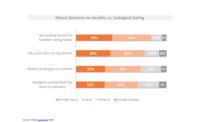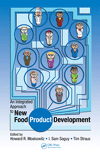Results of a new nationwide survey among leading culinary professionals on college and university campuses was released recently by Y-Pulse. The study was designed to gauge the current state of campus dining and the expected long-lasting impact of the pandemic on campus foodservice. Researchers found wide ranging adaptations that included: updated wellness programs, repurposed operations, updated equipment and new perspectives on vendor relationships.
“College and university foodservice operators are often at the leading edge of trends and quick to adapt their operations to meet the needs of their student customers, which makes them a great barometer to assess lifetime habits that are developing on today’s campuses,” said Sharon Olson, executive director of Y-Pulse. “We were thrilled to hear from a diverse range of campuses across the country and get a glimpse into the future of campus dining.”
Higher education campuses are unique because each creates its own distinct community. Overall wellness is an important aspect of campus life, and foodservice is a key component of wellness programs. 93 percent of study participants had a formal wellness program before the pandemic and 71 percent said their program has significantly changed since the beginning of the pandemic. Key changes to programs include a shift to virtual and outdoor programs.
The most significant change to foodservice programs has been the shift to more takeout-friendly dishes reported by 92 percent of participants. Slightly more than half (53 percent) of study participants reported that communal dining has been discontinued indefinitely and 63 percent report that group dining restrictions are likely to continue into the 2021-2022 school year. Yet 95 percent are operating residential dining fully or on a limited basis to meet the needs of their community. 90 percent of the foodservice professionals reported that they missed interacting with university diners.
In addition, half of campuses reported that they had a tighter food budget than prior to the pandemic, and guest chefs were no longer permitted on campus at the time of the survey. There were also numerous mentions of how the vendor community supported them by helping source necessary products that were in short supply, finding innovative low-contact products and offering financial flexibility.
One of the post-pandemic policies likely to continue is enhanced employee training programs reported by 89 percent of survey participants. Many of these programs relate to hygiene and health screening of employees. Camaraderie among the workforce has traditionally been a hallmark of college and university operations, and the majority of college and university operators (53 percent) reported that working in a socially distant kitchen has not negatively affected the morale of the dining staff.









